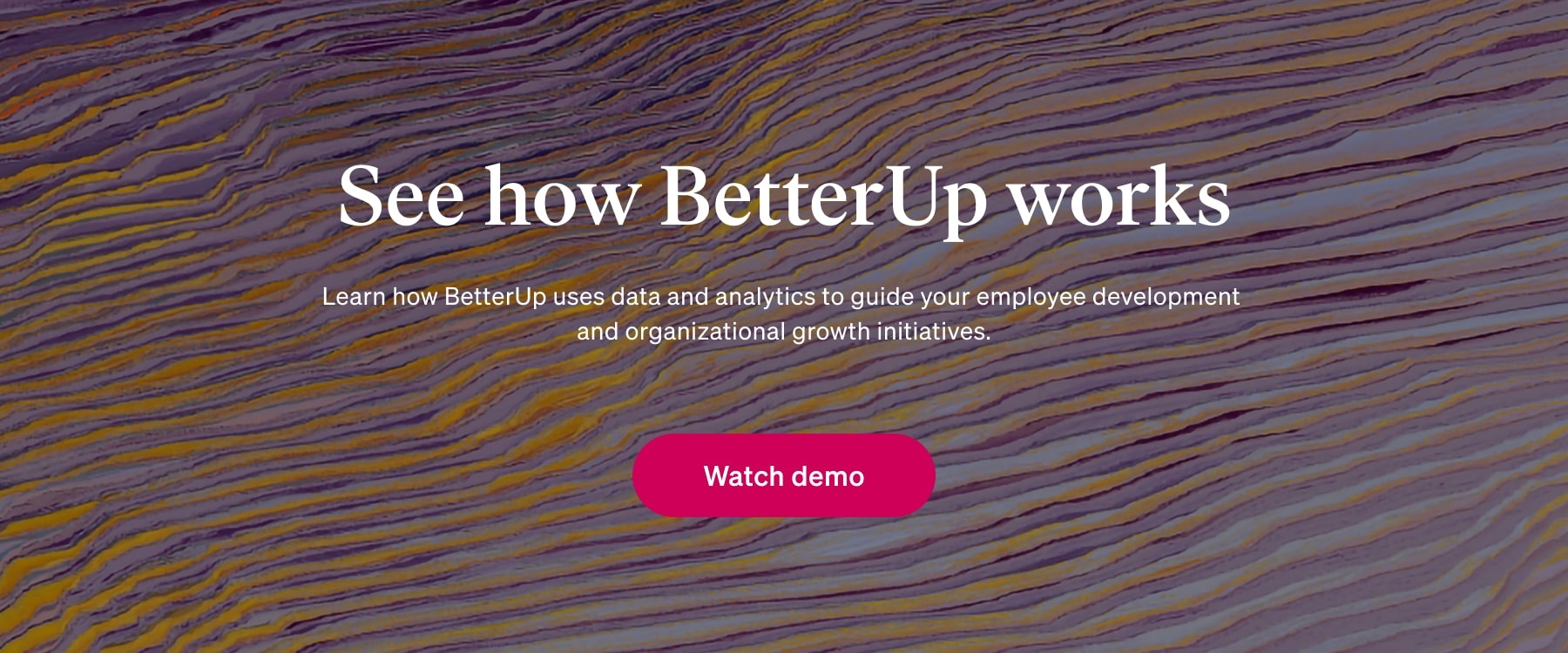-
For Business
For Business
Products
LeadBuild leaders that accelerate team performance and engagement.
Care™Drive productivity through sustained well-being and mental health for all employees with BetterUp Care™.
Solutions
Sales PerformanceTransform your business, starting with your sales leaders.
Diversity & InclusionFoster a culture of inclusion and belonging.
Customers
Case StudiesSee how innovative companies use BetterUp to build a thriving workforce.
- For Individuals
-
Resources
Resources
LibraryBest practices, research, and tools to fuel individual and business growth.
EventsView on-demand BetterUp events and learn about upcoming live discussions.
BlogThe latest insights and ideas for building a high-performing workplace.
ResearchInnovative research featured in peer-reviewed journals, press, and more.
- About
Why workplace friendships are key to managing negative emotions on the job

You have too many deadlines, too many meetings, and too many fires to put out. But it’s Friday, and you and your best friend from the office have 30 minutes to grab a slice of pizza and vent. Few things could cure your work blues faster.
These days, the number of people with a workplace confidant is dwindling. BetterUp’s Connection Crisis report recently revealed 43% of employees don’t feel a sense of connection toward their co-workers. The research also found that 38% don’t trust their colleagues. Some workers don’t appear to be bothered by the social connections weakening within the workplace: One-third of respondents said they weren’t putting in much effort to build relationships with their co-workers.
People may shrug off the work friend, but the consequences run deeper than lonely lunches and solo coffee breaks. Our report flagged a strong link between workplace friendships and well-being. Connection — defined as the number of people we know and how close we feel to these people — impacts how we feel, perform, and grow.
We wanted to dig into the specifics behind the link between connection and well-being and determine how workplace relationships influence certain outcomes. Does social connection at work impact loneliness, burnout, stress, and belonging? Does the answer change depending on the level of connection?
Work friends drive wellness
To answer these questions, we surveyed more than 1,000 working U.S. adults in February. BetterUp’s Khoa Le Nguyen, an applied behavioral scientist, analyzed their responses and uncovered the trends behind workplace connection and well-being.
In interviewing respondents, we wanted to assess connection in three areas. We posed the most basic question first: Does social connection at work matter for well-being outcomes and work engagement? Next, we pursued a more complex topic: the effects of social connection based on the type of relationship. We know from existing research that friendships provide emotional support.
According to one 2015 study, belonging to a social group can boost self-esteem. A more recent study found that good conversations with friends can even protect brain health. Given the benefits of friendship, we wanted to assess the impact of both strong work relationships and tepid acquaintanceships. So we asked responders how many people at work they consider “friends'' and how many people they consider “friendly.”
To determine the impact of relationship type on well-being outcomes, we compared how well a person’s number of friends predicted their experience with loneliness, burnout, stress, belonging, and work engagement. We measured this against respondents’ number of friendly co-workers.

When taking into account the other types of connection, strong ties (those we consider friends at work) much more strongly predicted positive outcomes compared to weak ties (friendly coworkers). Respondents with workplace friends experienced less loneliness and burnout. They encountered less stress — a pattern that was 32 times as strong compared to workers with more acquaintances than friends. They also enjoyed greater belonging and engagement.
This isn’t to say that weaker ties aren’t also important to professional development. Having a number of friendly, but not necessarily close, coworkers has also been found to increase career opportunities and boost information flow.
Can employers foster friendship?
Social connection in the workplace may be deteriorating, but our data shows that it’s very important for workers' well-being, their sense of belonging, and their energy and engagement. This dichotomy should encourage employers to preserve and foster workplace friendships.
Other research supplements BetterUp’s findings. Data from Gallup, for example, found that employees with a work best friend demonstrated seven times higher job satisfaction. They also produced less cortisol in stressful moments.
Strong relationships could have a business impact, too: Gallup predicted that workplaces could see improved safety, enhanced customer engagement, and boosted profit by increasing the number of workplace friendships.
Friend-making is often organic, which may lead some to wonder if it’s best left to employees. Employers may be surprised to learn, then, that there are a number of strategies to promote workplace friendship:
- Create connections: Hybrid and remote work arrangements have many benefits but they have also put relationships in grave danger. Remote work erased casual run-ins by the water cooler and the more intentional bonding activities of off-site meetings. Still, employers proved creative in instilling connection. Some organizations initiated digital hangouts, from trivia to movie nights. Others were more deliberate, starting mentorship programs to help younger employees navigate an office gone virtual.
- Unite the personal with the professional: Employers can foster connection by encouraging employees to share some of their personal lives in a professional context. Managers can call on willing workers to share the best moments of their weekend during the Monday stand-up. Organizations can dedicate virtual chat rooms to shared passions, from pets to crafting. And employees can call out personal wins: A personal best in a 5K, a dream trip to Japan, an upgraded apartment, a new baby, etc.
- Invite vulnerability: Some of the best connections are made via vulnerability. Leaders can set the tone by sharing a struggle they face at work. Or they can initiate conversations about a frustration everyone has in common: the lasting woes of the pandemic.
As employers consider these and other strategies that unite workers, they’ll be encouraged to know their work will do double. Employees will forge close connections with each other, but they’ll also make plenty of acquaintances, which are shown to have positive payouts, too.
Erin Eatough, PhD
Sr. Insights Manager





